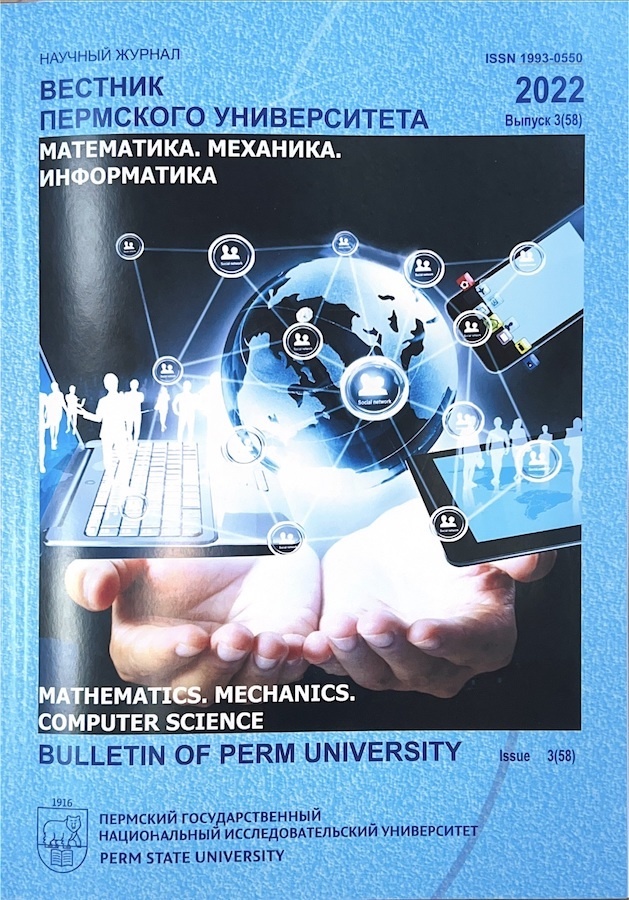Mathematical Methods Application in an Artificial Neural Network to Recognize "Fake" Emotions in the Voice
- Authors: Bykov I.V.1, Rotaneva N.Y.2, Shkaraputa A.P.1
-
Affiliations:
- Perm State University
- Mariupol State University named after A.I. Kuindzhi
- Issue: No 4 (67) (2024)
- Pages: 104-116
- Section: Computer science
- URL: https://journal-vniispk.ru/1993-0550/article/view/307296
- DOI: https://doi.org/10.17072/1993-0550-2024-4-104-116
- ID: 307296
Cite item
Full Text
Abstract
This paper proposes a methodology for comparing the emotional component of the voices of speakers actually experiencing emotions and those trying to reproduce them. The technique assumes the use of as classifiers the ratio of frequencies of local maxima of the spectrum of the of a sound wave. In this work we studied 4 categories of basic emotions: anger, sadness, fear, joy. To obtain comparative characteristics in each category 30 records with "fake" and " true" emotion were investigated – 240 records in total. A statistical comparative analysis of the classifiers was performed and found a significant differences in the data for the genuine emotion and its imitation. Also, a model of an artificial neural network, based on which a program was created to recognize the emotional message contained in human voice recordings. On the trained artificial neural network, an experiment was conducted to determine the emotional state of the speaker and the truth or falsity of his emotional message. Testing of sound files with different emotions showed good results for recognizing both the emotional state of the speaker and the truthfulness or falsity of the speaker's emotional message.
About the authors
I. V. Bykov
Perm State University
Author for correspondence.
Email: vanka.perm@mail.ru
Bachelor's degree in Applied Mathematics and Informatics Perm, Russia, Bukireva St., 15
N. Yu. Rotaneva
Mariupol State University named after A.I. Kuindzhi
Email: n.rotaneva@mgumariupol.ru
Candidate of Pedagogical Sciences, Associate Professor, Head of the Department of System Analysis and Information Technologies Mariupol, Russia
A. P. Shkaraputa
Perm State University
Email: shkaraputa@psu.ru
Candidate of Physical and Mathematical Sciences, Associate Professor of the Institute of Computer Science and Technology Perm, Russia, Bukireva St., 15
References
- https://www.computerra.ru - Computerra Magazine. 2021. [Electronic resource]. Mode of access: https: //www.computerra.ru/275450/rossijskie-uchenye-sozdali-riskcontrol-kotoryj-raspoznaet-lozh-po-golosu/ (date of address: 19.11.2024).
- Pelenitsyn, A.B., Stepanov, A.A. WHAT TO KNOW ABOUT THE SO-called “VOICE LIE DETECTORS” [Electronic resource] / еPelenitsyn A.B., A.A.Stepanov - Electronic text data [Electronic resource] / Pelenitsyn A.B. Pelenitsyn, A.A.Stepanov - Electronic text dan. Mode of access: http://poligraf.sp.ru/stati/abpelenicyn_aastepanov_detektory_lzhi_po_ golosu. html, free (date of reference: 19.11.2024).
- Izard, K.E. The Psychology of Emotions. St. Petersburg. Peter Publishers (2008).
- Shkaraputa, A., Kolcherina, A., Mishlanova, M. (2022). Determining of the Emotional State of a Person Using Computer Analysis of Sound Wave Parameters. In: Rocha, A., Isaeva, E. (eds) Science and Global Challenges of the 21st Century - Science and Technology. Perm Forum 2021. Lecture Notes in Networks and Systems, vol 342. Springer, Cham. https://doi.org/10.1007/978-3-030-89477-1_6.
- Alimuradov, A. K., Churakov, P. P. (2015). Review and classification of speech signal processing methods in speech recognition systems. Measurement. Monitoring. Control. 2(12) 27-35.
- Xuedong, H. Spoken Language Processing: A Guide to Theory, Algorithm and System Development. Huang Xuedong. New Jersey. Prentice Hall PTR (2001).
- Mehmet Cenk Sezgin, Bilge Gunsel & Gunes Karabulut Kurt. Perceptual audio features for emotion detection. EURASIP Journal on Audio, Speech, and Music Processing volume 2012, Article number: 16 (2012). https://doi.org/10.1186/1687-4722-2012-16.
- Rakhmanenko, I.A., Meshcheryakov, R.V. (2017). Analysis of identification features in speech data using GMM-UBM speaker verification. Proceedings of SPIIRAS, pp. 32-50. St. Petersburg.
- Bliznyuk, O. A., Shkaraputa, A. P. (2027). The study of the application of the method of determining the basic emotions based on the ratio of frequencies of the sound wave spectrum. Bulletin of Perm University. Mathematics. Mechanics. Informatics. 4(39), pp. 86-91.
Supplementary files









